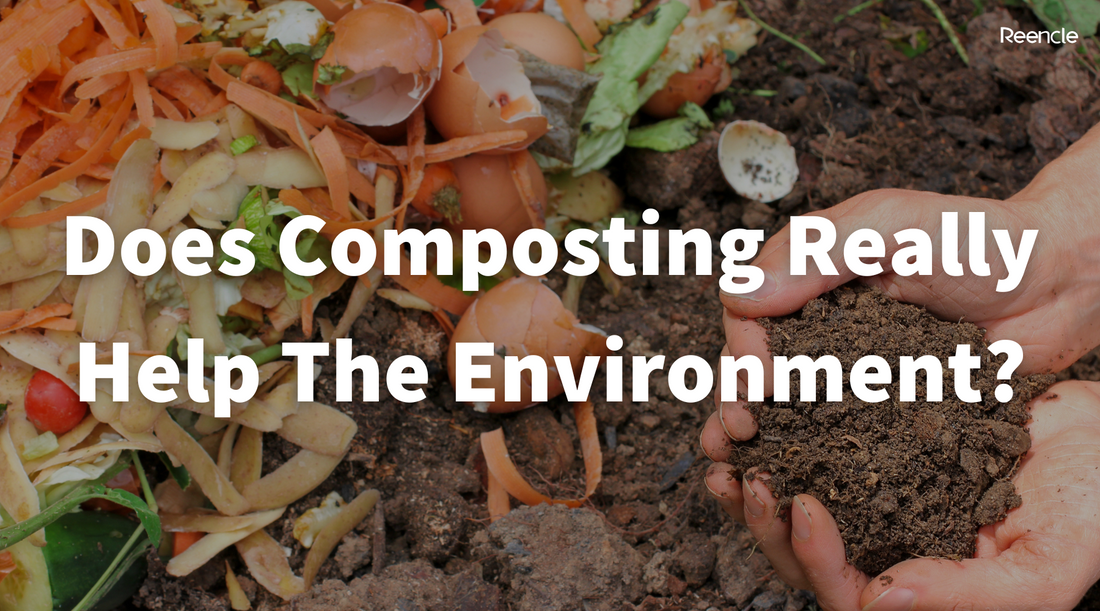Composting is a popular practice that involves the decomposition of organic materials to create nutrient-rich soil. The resulting compost can be used to fertilize plants, enrich soil, and reduce waste.
However, many people wonder whether composting is really worth the effort. Does it really help the environment? In this blog post, we'll explore the environmental benefits of composting and how it can make a positive impact on the planet.
What is Composting?
Composting is the process of breaking down organic materials such as food scraps, yard waste, and paper into nutrient-rich soil. The process can occur naturally, but it can also be done with the help of microorganisms, such as bacteria and fungi. These microorganisms consume the organic matter and break it down into its basic components, such as water, carbon dioxide, and organic matter.

Why is Composting Important?
Composting is important because it reduces waste and helps to conserve natural resources. By composting, organic materials are diverted from landfills where they would otherwise break down anaerobically and produce methane gas, a potent greenhouse gas that contributes to climate change. Additionally, composting reduces the need for chemical fertilizers, which can harm the environment by polluting waterways and damaging soil quality.
Environmental Benefits of Composting
Reduces Greenhouse Gas Emissions
When organic waste is sent to landfills, it decomposes anaerobically and produces methane gas, which is 21 times more potent than carbon dioxide in terms of global warming potential. Composting reduces greenhouse gas emissions by diverting organic waste from landfills and promoting aerobic decomposition, which releases carbon dioxide instead of methane.
Improves Soil Quality
Composting creates a nutrient-rich soil that can be used to fertilize plants, improve soil quality, and reduce erosion. The organic matter in compost improves soil structure, increases water-holding capacity, and promotes the growth of beneficial microorganisms.

Reduces Water Use
Composting reduces the need for chemical fertilizers, which can leach into waterways and pollute drinking water. By using compost as a natural fertilizer, farmers and gardeners can reduce the amount of water needed to grow crops and plants.
Supports Sustainable Agriculture
Composting supports sustainable agriculture by reducing the need for synthetic fertilizers and pesticides. By using compost instead of chemical fertilizers, farmers can improve soil health, reduce erosion, and promote biodiversity. Additionally, composting can help to reduce the amount of waste produced by agricultural operations, such as manure and crop residues.

Reduces Landfill Waste
Composting reduces the amount of waste sent to landfills, which can reduce the need for new landfills and extend the life of existing landfills. By diverting organic waste from landfills, composting also reduces the amount of methane gas produced by landfills, which can have a positive impact on climate change.

By default, we should all learn about composting, as we all produce food waste no matter how hard we try not to. We are responsible for saving the earth - let's start now.
Save RM600 on your Reencle pre-order today when you sign up for our newsletter at www.reencle.my! Don’t forget to check your email for an exclusive discount code and apply this code at checkout to redeem your RM600 discount! If you have any questions, please feel free to reach out to us on Instagram or Facebook and we’d be happy to help!

